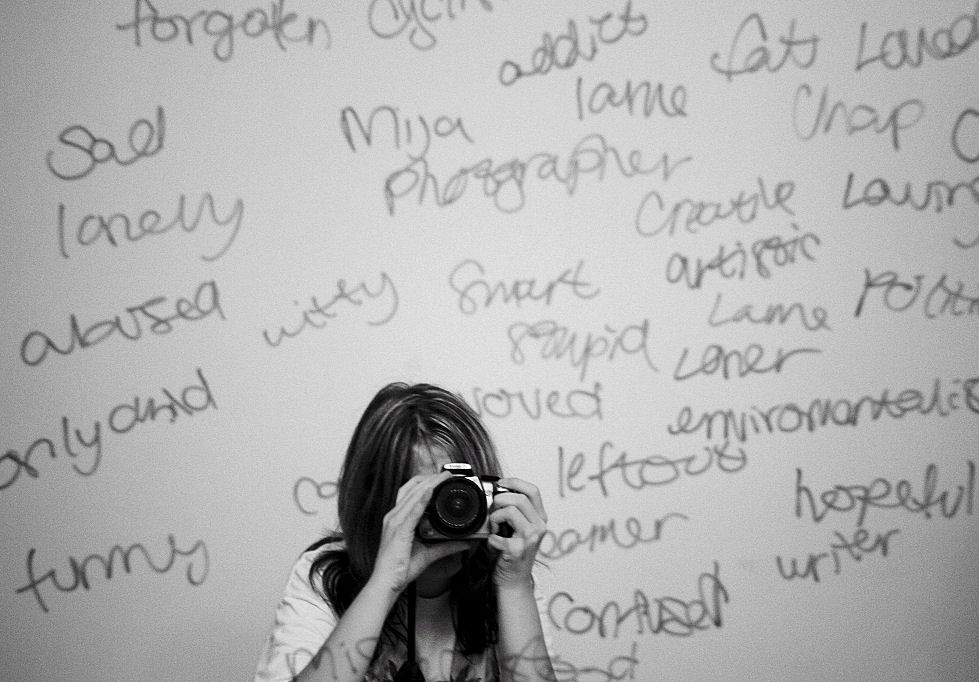The best smoothie I ever had also happens to be the most thought-provoking.
Smoothies and indecision
In a scene oft-repeated through the course of my life, I was at a cafe, unable to decide between three equally delicious sounding options. And in a tactic oft-deployed to deal with my indecision, I asked the guy taking my order which he recommended.
Little did I know that he would turn my simple question into an existential exercise.

“Look, they’re all amazing,” he said. “What does your gut say?”
“I don’t know!” I protested. “I’m infamously indecisive about stuff like this.”
“You’re overthinking it – just listen to your gut.”
Because I am familiar with the Enneagram, it was at this point that I most certainly began to overthink it.
I am gut-centred. I’m not a hundred percent sure what this means but suspect it relates to the fact that I mostly think and operate intuitively, working backwards with logic from what I instinctively sense is right or a good idea. Yet in theory my Enneagram type is also paradoxically detached from its gut centre, leading to the kind of indecision I experienced in ordering a smoothie.
As I began to formulate the words to explain this in a concise way to the cafe staff member (I suspect he was also the owner), he told me to close my eyes and take three deep breaths to “tap into” my gut knowledge. That’s what they taught him in therapy, he added.

To be honest, I was actually getting a little stressed at this point, thinking, How do I respond politely to this New Age hippie? I didn’t want to be rude.
The funny thing is this stress produced a decision. Before I could close my eyes and take three deep breaths – or tell him why I didn’t want to close my eyes and take three deep breaths – I knew I wanted the strawberry and cacao with almond butter.
It was an unexpected and beautiful moment of clarity.
And it turned out to be the best smoothie I’ve ever had.
Drifting from what we know
Lately I have been thinking about my indecision and tendency to accommodate the wishes of others. I do not struggle with major life decisions – just the minor ones – and I can be opinionated about both trivial and important things. I’m far from being a doormat, but in many ways I have suppressed my own preferences to the point where they do not exist. For example, I never seem to care where we go for dinner and I generally keep an open mind on polemics.
Since I was young, I have had this sense of drifting through life in a semi-charmed sort of way. A sense that life happens to me, that I live passively. One of the greatest aims and achievements of adulthood for me has been to be more intentional about the way that I live – to identify both what I want and what I know to be true, and pursue that.

While this drifting and disconnection from my own desires is quite typical of my type, I don’t think it’s exclusive to my corner of the Enneagram.* I think all of us, in some way, fall asleep to our truest desires. We get confused by the noise of what we should want, coming at us from peers and from advertising.
And we fall asleep to what really matters. We numb out, choose escapism from the things that are hard – through alcohol and self-medication on one extreme, through Netflix and even work on the other end of the spectrum.

A quote from an article I read recently about Soren Kierkegaard, one of my favourite philosophers, makes an interesting point about the moral outworking of this. [You can skip the quote and go straight to the next paragraph if you’re not into dense philosophical argument – in fact I recommend it.]
In the life of the spirit there is no standing still … If a person does not do what is right at the very second he knows it — then, first of all, knowing simmers down. Next comes the question of how will appraises what is known. Willing is dialectical and has under it the entire lower nature of man. If willing does not agree with what is known, then it does not necessarily follow that willing goes ahead and does the opposite of what knowing understood (presumably such strong oppositions are rare) rather willing allows some time to elapse, an interim called: “We shall look at it tomorrow.” During all this knowing becomes more and more obscure, and the lower nature gains the upper hand more and more; for alas the good must be done immediately, as soon as it is known … the lower nature’s power lies in stretching things out. Gradually, willing’s objections to this development lessens, it almost appears to be in collusion. And when knowing has become duly obscured, knowing and will can better understand each other; eventually they agree completely, for now knowing has come over to the side of willing and admits that what it wants is right.
From The Sickness Unto Death, as quoted in “Kierkegaard’s moral phenomenology: When ethical consistency becomes ethical evasion” by Gordon Marino
In other words, there is a moment in which some part of us recognises what is right. But if we don’t act immediately on it – perhaps because it’s hard or inconvenient – this knowledge is transformed in our minds such that it becomes, over time, less right.
We give air space to the part of us that doesn’t want to do the right thing and that part persuades us to desire what is convenient. We end up convincing ourselves that what we now desire is what is right, rather than willing ourselves to desire what we knew to be right. We allow truth to be corrupted into convenience.

Listening to our gut
Obviously Kierkegaard’s comments relate to moral and ethical thinking, not smoothie selection. (And perhaps I have just complicated things by trying to bring the two ideas together.)
However I do feel there is something in all of this that is valid for both the serious and the trivial: that truth is often closer to us than we realise, even when it feels far away.
I felt like the three smoothie options were equally attractive, but something in me already knew one was preferable to the others.
That knowledge was simply obscured.
I feel like the question of whether to help a homeless person on the street is complicated, but perhaps it isn’t at all. Something in me knows they need help and I can provide it, but that’s uncomfortable and so I reason that they’ll just spend the money on drugs, or that I’m late to a meeting so I can’t stop today. Given time, this reasoning becomes so compelling to me that the whole situation begins to feel complicated.
My knowledge of another human’s need and my ability to meet it in some way is obscured by Reason.
I am in no way advocating for us to act on impulse. While I do not deny the value of reason or reflection (in fact, this entire blog is a case in point), it’s often the case that overthinking things can leave us with less clarity. We can lose sight of what is true.

I wish we could close our eyes, take three deep breaths and proceed to choose love over apathy, generosity over greed, others over ourselves. Life doesn’t work that way. Humans don’t work that way.
But I do think deep down we possess not only a surer knowledge of what we want, but also a sense of what is right and true. We should “tap into” that a little more often, instead of using Reason to procrastinate when what is right and true happens to be hard.
*
It’s not on a high mountain—you don’t have to get mountaineers to climb the peak and bring it down to your level and explain it before you can live it. And it’s not across the ocean—you don’t have to send sailors out to get it, bring it back, and then explain it before you can live it. No. The word is right here and now—as near as the tongue in your mouth, as near as the heart in your chest. Just do it!
Deuteronomy 30:11-14 (The Message)
Header image: Ava Sol.
* The Enneagram is a circle – it has no corners, geddit?





2 comments